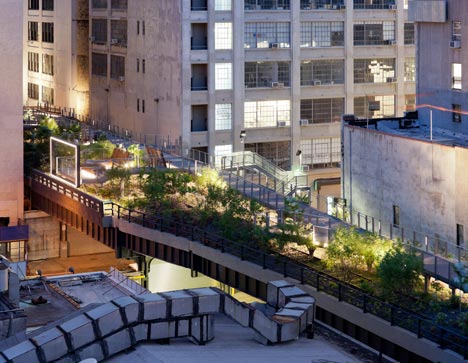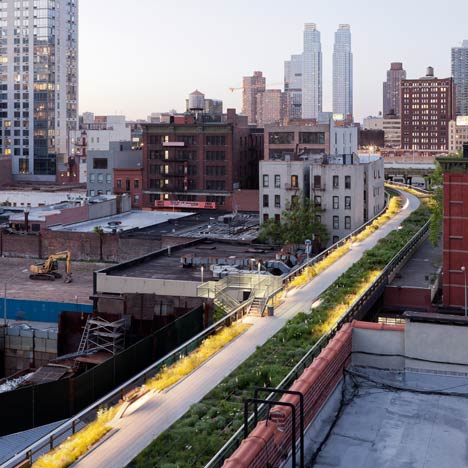
The High Line Section 2 opens
Landscape architects James Corner Field Operations, architects Diller Scofidio + Renfro and planting designer Piet Oudolf have completed Section 2 of the High Line, a 1.5 mile-long elevated park on an abandoned railway in New York.
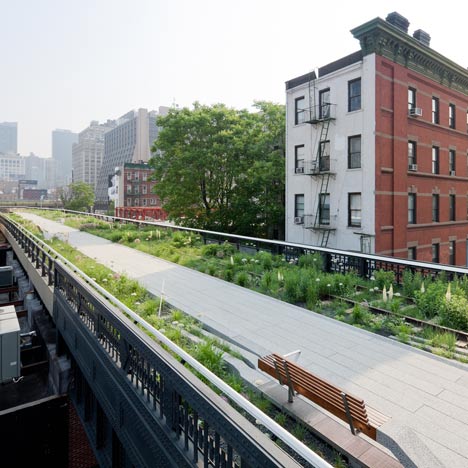
The project spans 22 blocks through the west side of Manhattan and is split into three equal stages, with Section 2 bringing the completed length up to one mile.
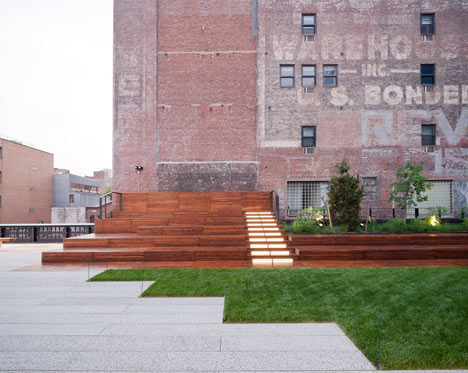
Unlike Section one, which was completed in 2009, this second phase includes a stretch of lawn.
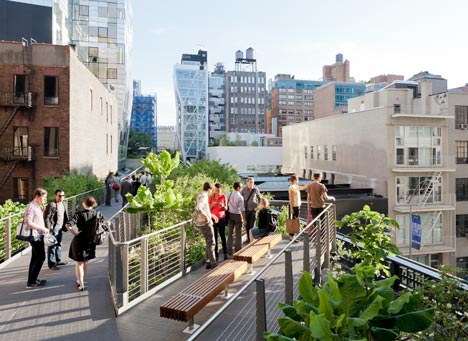
A new platform elevated 2.5 metres above the main High Line overlooks a canopy of trees and plants below.
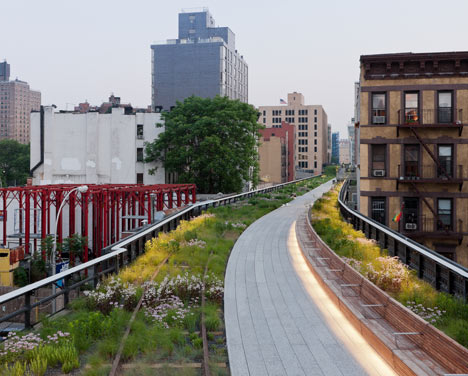
Photographs are by Iwan Baan, apart from where otherwise stated.
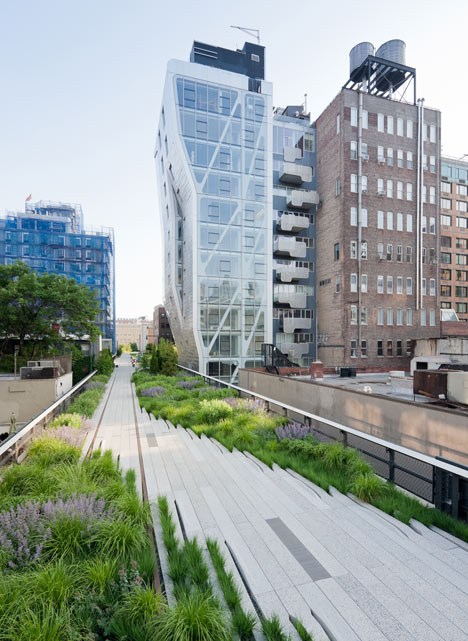
See our earlier story on Section 1 of the High Line »
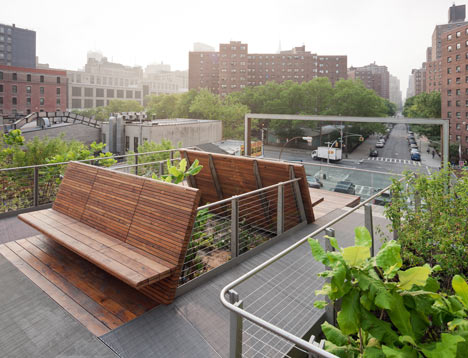
More projects by Diller Scofidio + Renfro on Dezeen »
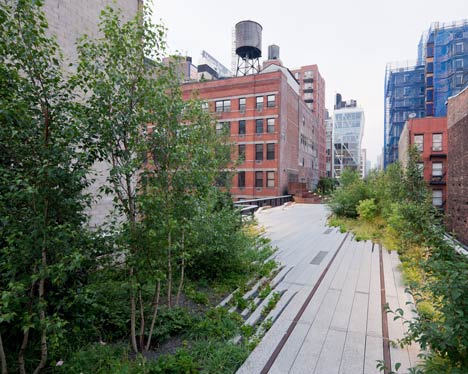
More landscape architecture on Dezeen »
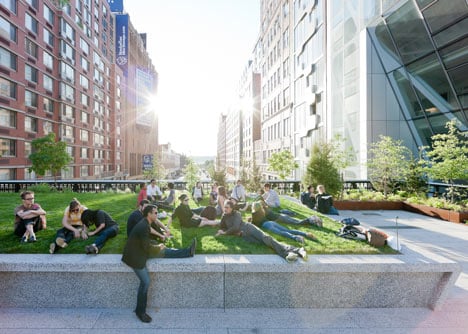
The following information is from Diller Scofidio + Renfro:
The High Line (Phase II)
Public Park: New York, NY 2011
The High Line, a collaboration between Field Operations, project lead, with Diller Scofidio+ Renfro and Piet Oudolf, is a new 1.5-mile long public park built on an abandoned elevated railroad stretching from the Meatpacking District to the Hudson Rail Yards in Manhattan.
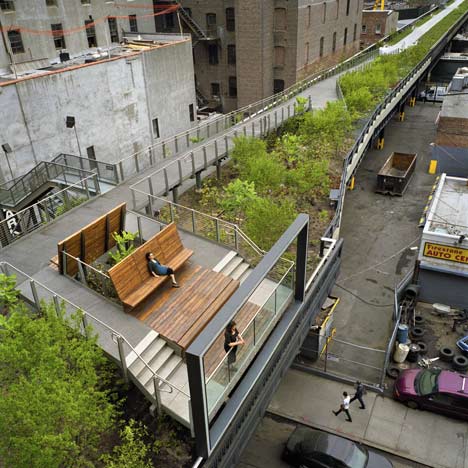
Above photograph is by Barry Munger.
Inspired by the melancholic, unruly beauty of this postindustrial ruin, where nature has reclaimed a once vital piece of urban infrastructure, the new park interprets its inheritance.
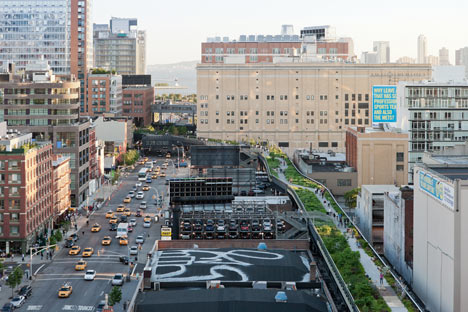
It translates the biodiversity that took root after it fell into ruin in a string of site-specific urban microclimates along the stretch of railway that include sunny, shady, wet, dry, windy, and sheltered spaces.
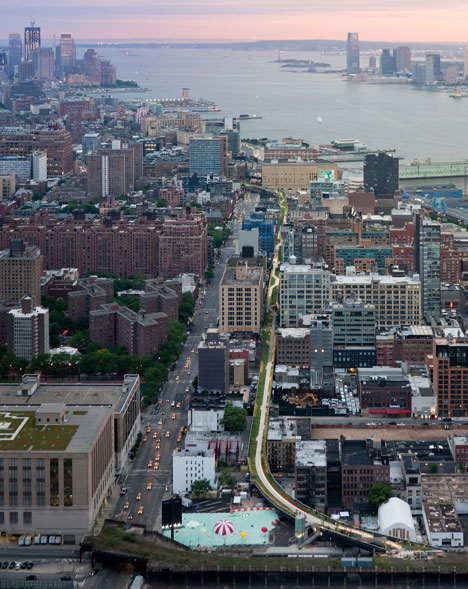
Through a strategy of agri-tecture—part agriculture, part architecture—the High Line surface is digitized into discrete units of paving and planting which are assembled along the 1.5 miles into a variety of gradients from 100% paving to 100% soft, richly vegetated biotopes.
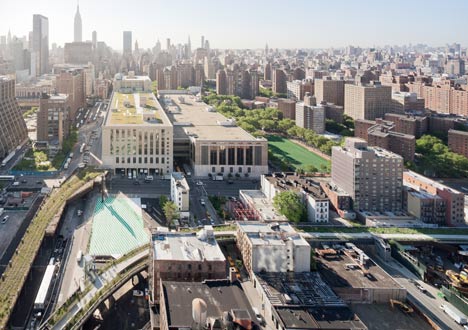
The paving system consists of individual pre-cast concrete planks with open joints to encourage emergent growth like wild grass through cracks in the sidewalk. The long paving units have tapered ends that comb into planting beds creating a textured, “pathless” landscape where the public can meander in unscripted ways.
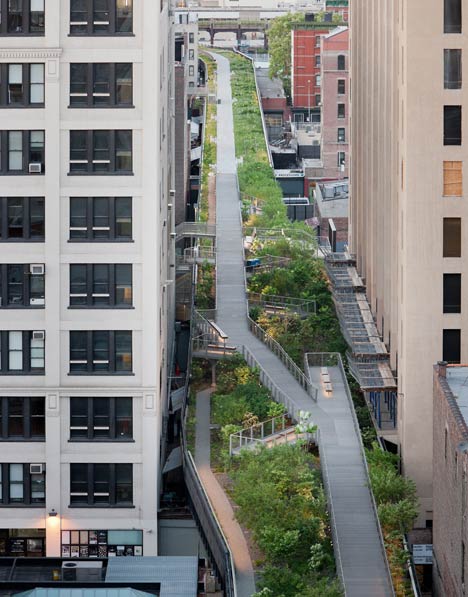
The park accommodates the wild, the cultivated, the intimate, and the social. Access points are durational experiences designed to prolong the transition from the frenetic pace of city streets to the slow otherworldly landscape above.
